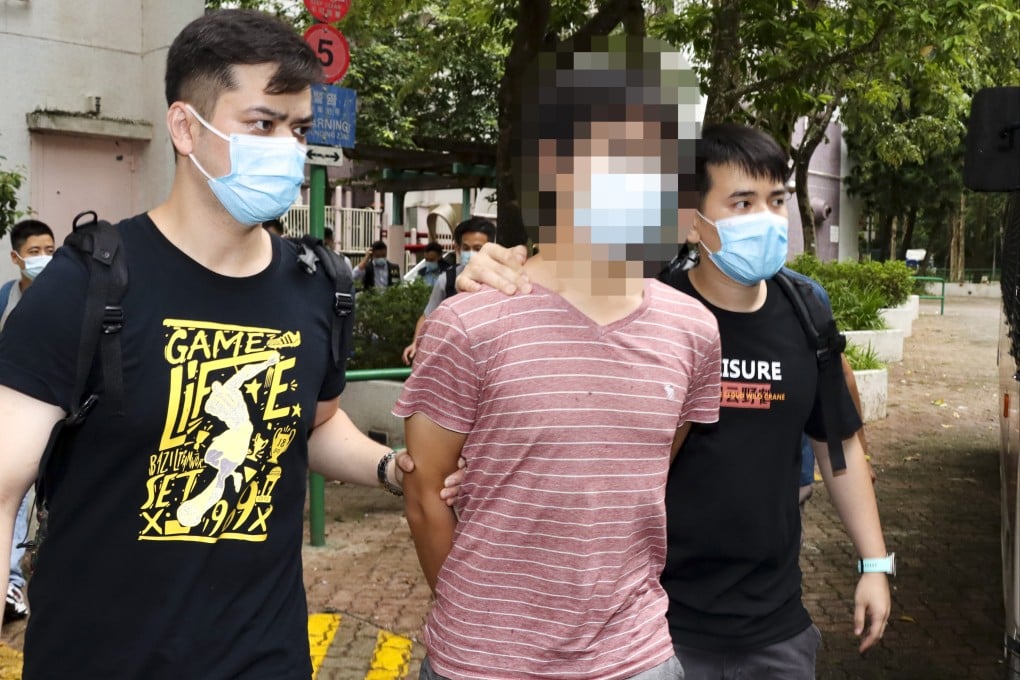National security law: Hong Kong university student gets 5 years’ jail for inciting secession on social media
- District Court judge finds engineering undergraduate Lui Sai-yu’s offence to be of a ‘serious nature’
- Police initially focused on his sale of weapons through social media, but later turned their attention to his Telegram channel containing more than 1,000 provocative messages

A Hong Kong university student was sentenced to five years in jail on Friday for inciting secession by advocating the city’s independence and resistance to the Chinese Communist Party on social media, the fourth sentence delivered under the imposition of the national security law.
In the District Court ruling, Judge Amanda Woodcock found engineering undergraduate Lui Sai-yu’s offence to be of a “serious nature” and warranted at least five years’ imprisonment in accordance with the new legislation, regardless of how much remission the court agreed to offer on the basis of his remorse for the crime.
The national security law imposed by Beijing in June 2020 has set out minimum sentences depending on the gravity of offences, which were previously absent in the city’s common law regime. The legislation bans acts of secession, subversion, terrorism and collusion with foreign forces.
Woodcock initially sentenced Lui to 44 months in prison following a one-third reduction from a starting point of 5½ years. But the judge revised her sentence at prosecutors’ request after acknowledging she was bound by Article 21 of the security law and could only trim the defendant’s sentence by six months in the case of a serious incitement offence under the legislation.
The 25-year-old Polytechnic University student is the third person to be found guilty of inciting secession, and the sixth to be convicted under the national security law, although two people await sentencing. Other defendants have previously been convicted of charges including terrorism and collusion with foreign forces.
Lui pleaded guilty on Wednesday in exchange for prosecutors dropping two charges stemming from possession of firearms and offensive weapons.
In September 2020, police’s national security unit raided his home in Fanling and seized a pepper ball launcher, two military knives and an extendable baton, as well as protective equipment commonly used by protesters during the social unrest in 2019.